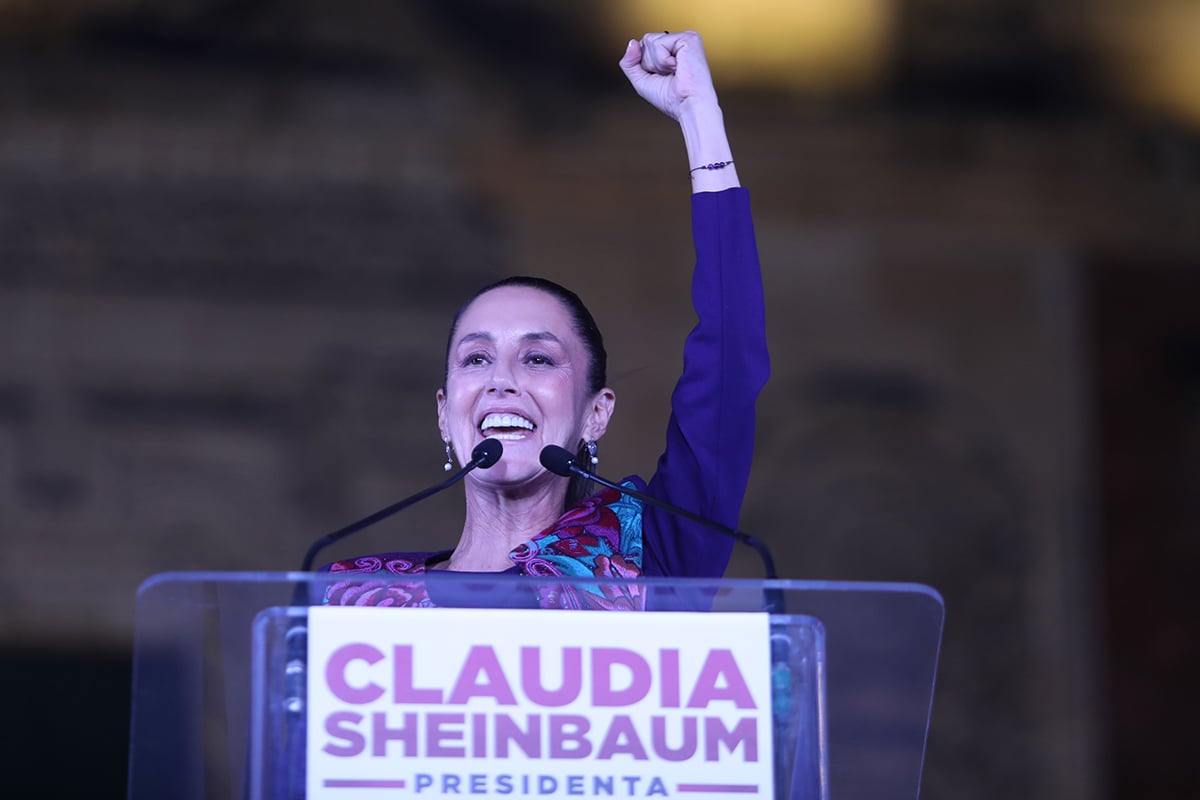Claudia Sheinbaum has made history as Mexico’s first female president, a groundbreaking achievement that has shifted the country’s political landscape. This momentous occasion marks a significant departure from more than two centuries of male dominance in Mexico’s highest office. Both within the congressional halls and across the nation, this historic presidency has garnered widespread attention and celebration.
Before rising to Mexico’s top political position, Sheinbaum carved out an impressive career. As the former mayor of Mexico City, she gained national recognition for her leadership and policy initiatives. A scientist by training, with a background in environmental studies and student activism, Sheinbaum’s approach to governance has always been shaped by her commitment to social justice and scientific evidence. Now, with her ascension to the presidency, Sheinbaum stands as a trailblazer for women in Mexican politics.
Sheinbaum steps into the role following the highly popular Andrés Manuel López Obrador, who concluded his term with a strong base of support. As a close ally of López Obrador, Sheinbaum has often been seen as his political heir. In her first speech as president, she signaled her intent to build on López Obrador’s key policies, particularly those aimed at reducing poverty, boosting employment, and raising wages under the banner of “Mexican humanism.”
Key issues on Sheinbaum’s agenda include expanding healthcare and education. She has committed to enhancing the accessibility of Mexico’s public healthcare system, making it available to all citizens. Furthermore, she plans to increase the number of public high school and university spots to ensure more educational opportunities for Mexican youth. She has framed these initiatives as essential rights for every citizen, reflecting her vision for a more equitable society.
However, significant challenges loom for Sheinbaum, especially concerning Mexico’s ongoing struggle with cartel-related violence. Several regions, including Sinaloa and Chiapas, remain plagued by violent conflicts, compounded by internal strife within the powerful Sinaloa Cartel. Critics question whether Sheinbaum’s experience as mayor of Mexico City will equip her to tackle these national security issues, particularly if she continues López Obrador’s strategy of non-confrontation with the cartels.
Despite these challenges, Sheinbaum’s supporters remain hopeful about her leadership. Many voters believe that her blend of continuity with López Obrador’s policies and her personal leadership style will guide Mexico through its current challenges. As she begins her presidency, all eyes will be on how Sheinbaum addresses these critical issues and whether she can balance continuity with innovation in her governance.
Although López Obrador has officially stepped away from politics, there is speculation that his influence may still be felt. Given his close ties with Sheinbaum, many wonder if his political legacy will continue to shape her administration. Still, Sheinbaum has emphasized her commitment to governing on her own terms, drawing on her unique experiences and perspectives as she charts her path forward.
Claudia Sheinbaum’s presidency signifies a pivotal moment in Mexico’s history. Her rise to the nation’s highest office represents both her dedication to public service and the shifting dynamics within Mexican society. As she embarks on this new chapter, she faces the complex task of meeting the diverse expectations of the Mexican people while tackling the country’s most pressing issues. The next several years will determine the lasting impact of her leadership and the future direction of Mexico.







